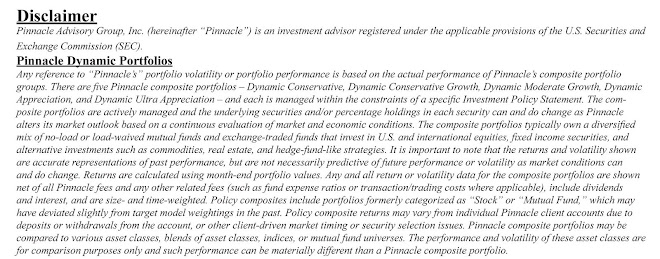Over the weekend I was reminiscing about a college professor, Dr. Hill, who actually asked the all-feared question on our philosophy final – “Why?” Being angered at the time at the stupidity of this question I wrote “Because” and walked out of the classroom. I later came to learn that anyone who actually attempted to answer the question got a “C” on the exam. The answer “Why not?” earned a “B,” and my well considered “Because” earned me an “A” on the final. I’ve been thinking about that answer lately because in the investment business, it’s important to know what investors believe in answering the question “Why?”
In the early 20th century, the French mathematician, Bachelier, gave us the first quantitative model for pricing options that relied on the idea that since it is impossible to figure out why prices move in a mathematical formula, it’s best to assume that price changes each day are the same as flipping a coin. He used the mathematics of his day for price movements (Brownian motion) and for volatility (standard deviation) to derive a formula for option pricing that looks very similar to the Black Scholes option pricing model used today. Using the mathematics of probability and statistics to make assumptions about the probability of price changes has been the rule for academics ever since. Markowitz’s Modern Portfolio Theory relies on the same assumptions and the same math to give us the notion of efficient portfolios. For academics, the answer to “Why?” would be to say, “Wrong question.” Modern Portfolio Theorists assume we can’t know “why,” and so they use past data to make inferences about future returns – a process called the stochastic method in science.
For active portfolio managers and value investors of every stripe the answer to “Why?” probably falls into one of two categories. If the answer has anything to do with interest rates, fiscal and monetary policy, earnings, currency, geopolitical news, etc, then we would consider these investors to be traditional value investors who find the answer to the question “Why?” in these and many other well known metrics of economic and financial health. If the answer to “Why?” is determined by the study of market prices, then we would characterize these investors as technical investors. At Pinnacle we expend enormous effort to find both traditional and technical answers to the question of why prices move. The academic approach is misused, misunderstood, and frankly dangerous for investors who think that the answer to “Why?” can be found in past data without understanding the “because.” I agree that actually finding the one reason that prices move is an impossible objective. But ignoring the news and the behavior of investors can only make you money in a long-term bull market, a state of affairs that may not be in the cards for quite awhile.

